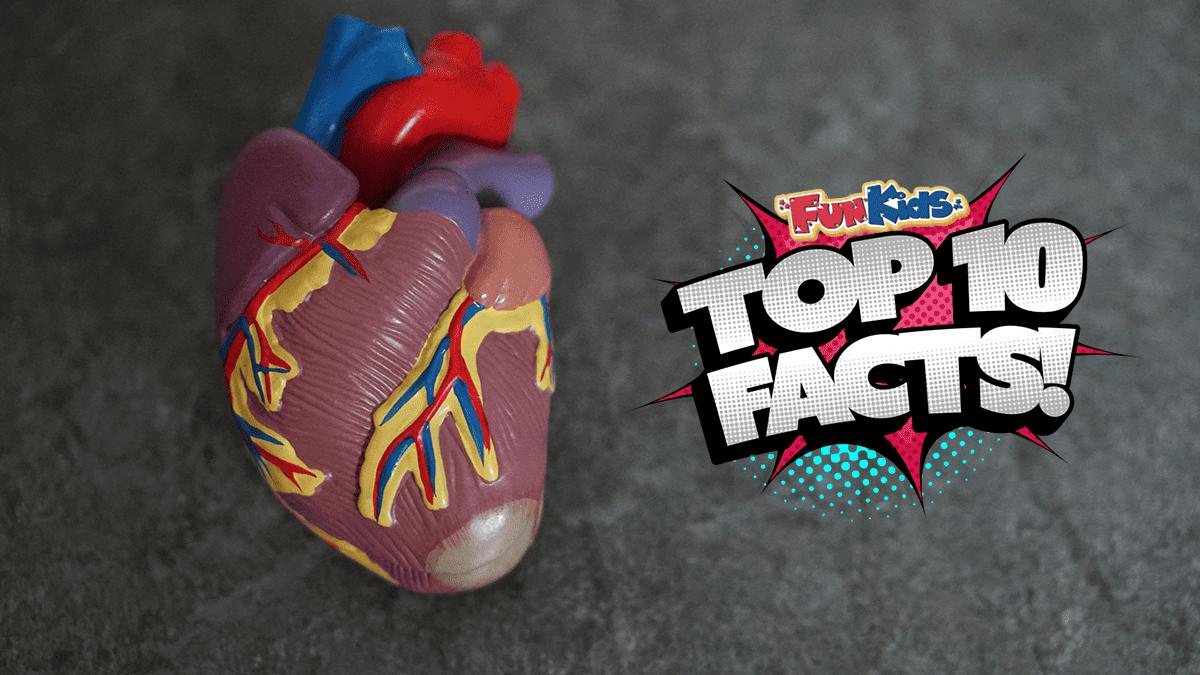1. The human heart beats about 100,000 times a day.
The human heart is a powerful pump that is responsible for circulating blood throughout the body.
The human heart beats about 100,000 times a day and pumps about 2,000 gallons of blood each day.
This amazing feat is possible because of the heart’s steady rhythm, which helps to ensure that blood is evenly distributed throughout the body.
The heart is also able to adjust its rate depending on your body’s needs. During exercise, for example, the heart rate increases to meet the increased demand for oxygen-rich blood.
Embed from Getty Images
2. The human heart is about the size of a fist.
The human heart is about the size of your fist.
It needs to be small enough to fit inside your chest, but large enough to pump a lot of blood around the body.
Have a look at your fist to see how big your heart is!
Embed from Getty Images3. The human heart has four chambers, two atria and two ventricles.
The two atria are the receiving chambers, which receive the oxygenated and deoxygenated blood from the body and lungs.
The two ventricles are the pumping chambers, which pump the oxygenated and deoxygenated blood out of the heart.
The four chambers of the heart work together to ensure the efficient flow of blood throughout the body.
Embed from Getty Images4. It takes 60 seconds for blood to travel through the entire circulatory system.
The circulatory system is a network of arteries, veins, and capillaries that transport blood throughout the body.
The circulatory system is highly efficient and is one of the most important systems in the human body. The heart pumps blood through this network of vessels, and the blood is able to travel through the entire system in just 60 seconds.
This is because the heart pumps blood at such a high rate of speed and the vessels are so small that the blood can travel through them quickly.
Embed from Getty Images
5. The human heart pumps the equivalent of 1 million barrels of blood in an average lifetime.
The average human heart pumps about 2,000 gallons of blood each day, which totals about 1 million barrels of blood over the course of an average lifetime.
This is an impressive amount of blood, and shows the remarkable capabilities of the human heart!
6. The heart is the first organ to form in a fetus.
The heart is the first organ to form in a fetus (the start of a baby) because it is essential for the development of the embryo.
The heart is responsible for circulating blood and oxygen to the other organs of the body, so it is essential for the growth and development of the fetus.
After around 6 weeks of being inside the womb, the heartbeat can be detected.
Embed from Getty Images7. The heart muscle never stops working, even when we are sleeping!
The heart muscle is a type of involuntary muscle that functions automatically without conscious thought.
This means that the heart muscle is constantly working, even when we are sleeping.
The heart pumps blood throughout the body and keeps our blood pressure and oxygen levels in balance, both of which are essential for health and well-being.
During sleep, the heart rate slows down but the heart muscle never stops working.
Embed from Getty Images8. The human heart creates enough pressure to squirt blood as far as 30 feet.
The human heart is an incredibly powerful organ, capable of pumping blood throughout the body with immense pressure.
This pressure is generated by the contraction of the heart’s four chambers and is strong enough to cause blood to be ejected in a powerful spray, traveling distances of up to 30 feet.
That is over 9 metres.
Woah!
9. The human heart creates a sound that can be heard with a stethoscope.
The human heart creates a sound that can be heard with a stethoscope because the heart is constantly beating and pushing blood through the body.
The sound is created by the valves in the heart opening and closing as the blood is pushed through the chambers of the heart.
The sound is amplified by the stethoscope and can be heard by a doctor or nurse.
Embed from Getty Images10. The heart has its own electrical system that controls the rate and rhythm of its beating.
The heart has its own electrical system that controls the rate and rhythm of its beating because it is a muscle.
The electrical system is made up of specialised cells called pacemaker cells. These cells generate electrical impulses that cause the heart to contract and relax in a regular rhythm.
The electrical system also adjusts the speed of the heart rate, depending on your body’s needs.
For example, when the body needs more oxygen, the electrical system will speed up the heart rate to supply more oxygen-rich blood.
Embed from Getty ImagesFind out more about the heart in Professor Hallux’s Heart Beat!
Send us your favourite facts!
Is there something we've missed? Got a fact you're dying to tell us? Submit it below and we could use it on a future Top 10 Facts page!
Remember to always ask an adult before filling out forms online.
Top 10 Facts
From the Tudors to rocks to fish, we have all the best facts right here!
More From Top 10 Facts



